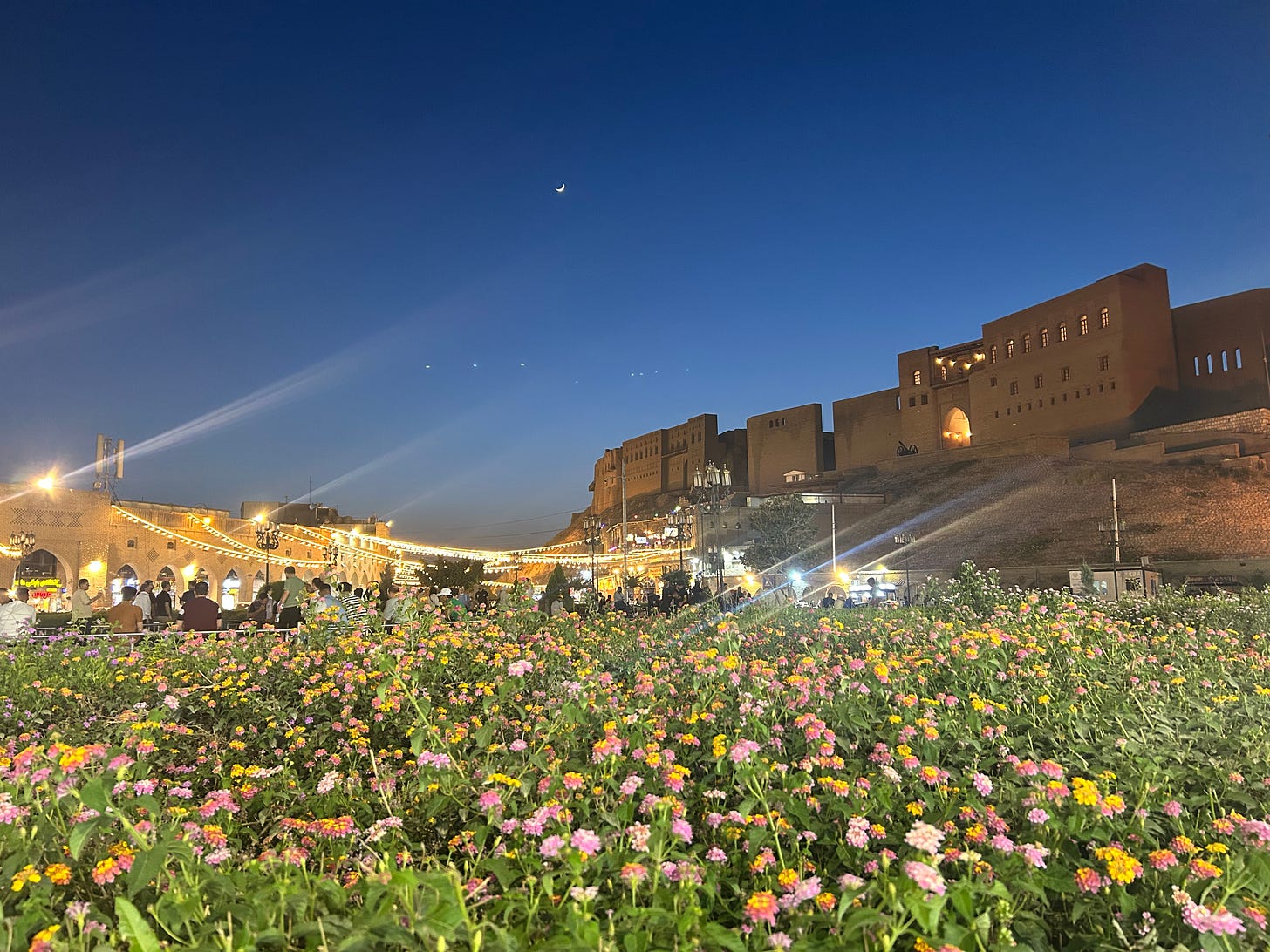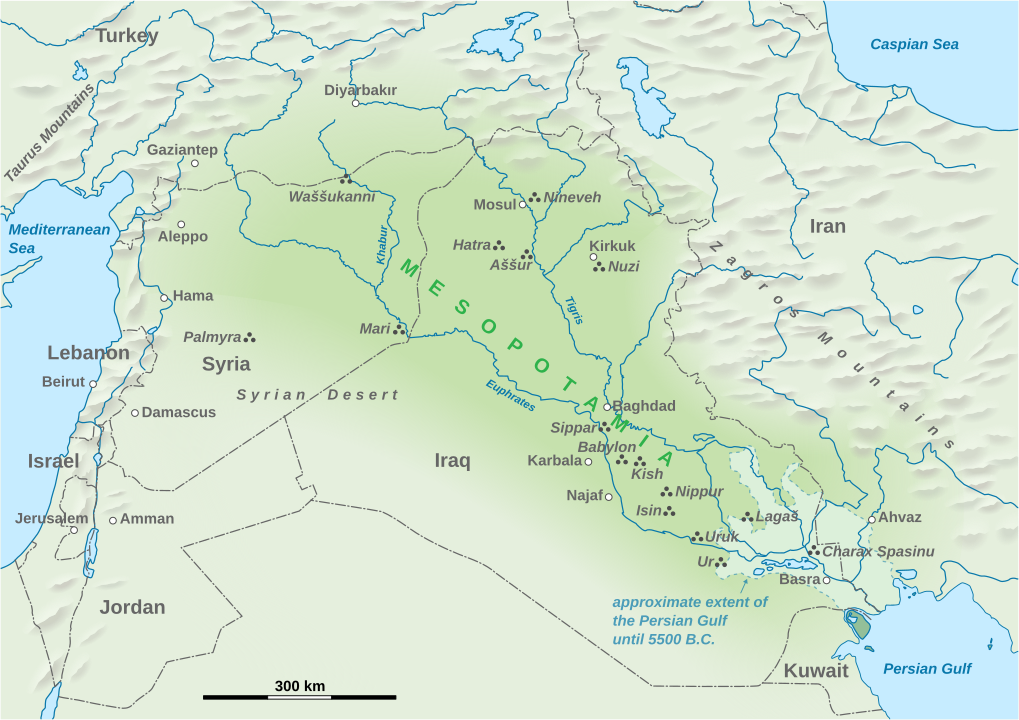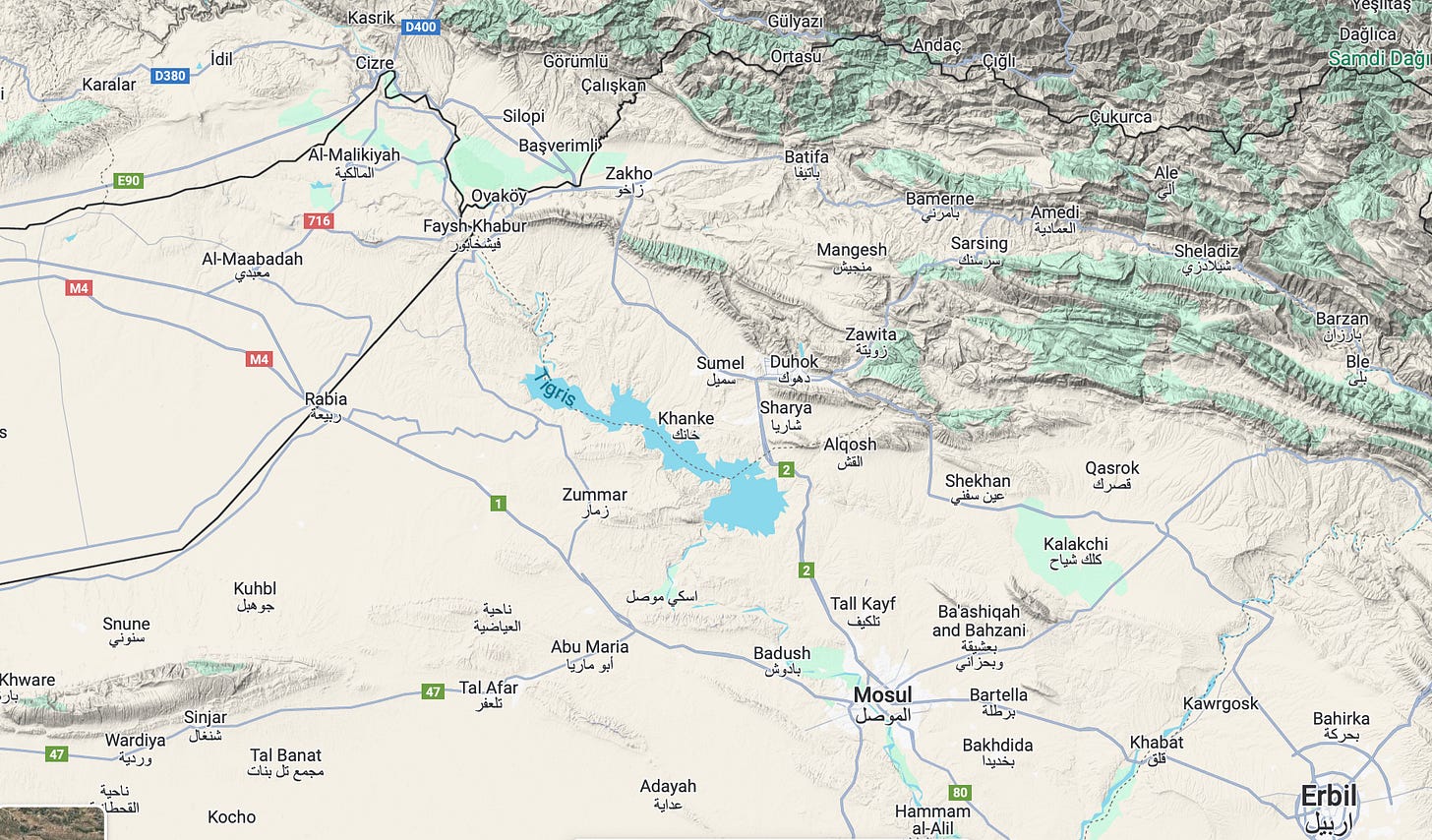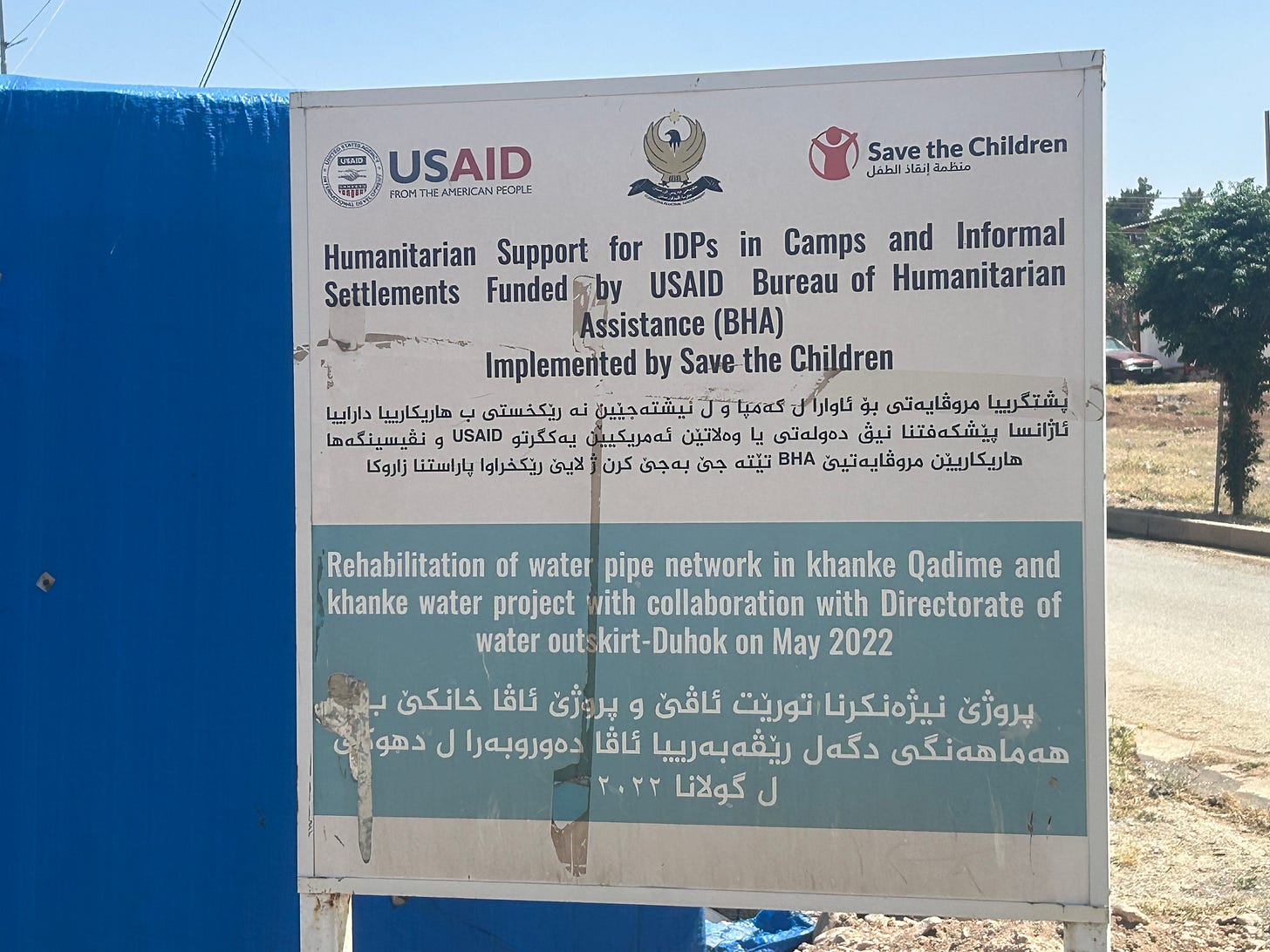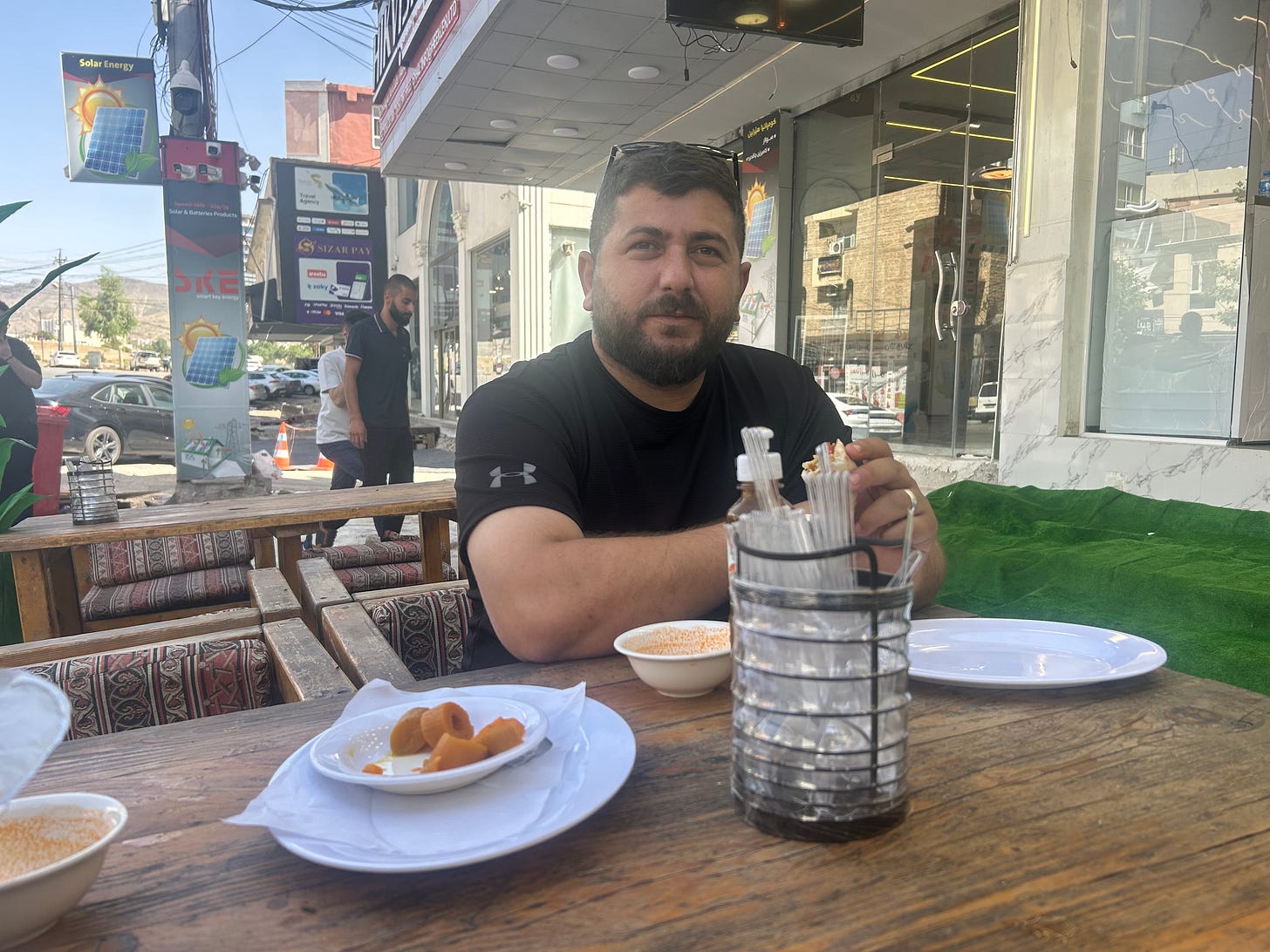Departures board, Sabiha Gökcen airport, Istanbul - ‘destinations disappearing, at the periphery…to tell ourselves apart from the wind.’
Flying into Erbil on a hot, dry night in early summer, the first surprise is the sea of lights below. It’s no illusion. Driving into town, the boulevards are packed with smart cars, even at 01.30 in the morning, and tall office buildings sprout from the roadside dust like desert mushrooms. It feels for a moment like I’ve flown from Istanbul to Istanbul. The Kirkuk oilfields, and $35 billion of Turkish investment in Iraq, have catapulted an ancient city on the road to Baghdad into the 21st century.
In March 2003 I spent three weeks with BBC colleagues just across the border in the small town of Cizre, in the predominantly Kurdish region of SE Turkey. First we were waiting to enter Iraq in the wake of a US ground invasion from Turkish soil which was narrowly vetoed by the Turkish Parliament. The Americans had to fly in to Kirkuk instead. We stayed on in Cizre, expecting to enter Iraq in the wake of Turkish troops instead, sent in to fight the PKK. In the end, the US vetoed that, in return.
Rather than twiddle our thumbs in Cizre, we explored the region. We visited Noah’s massive tomb, and attended early morning mass in the beautiful Deyrulzafaran monastery near Mardin, where the monks sang the Lord’s prayer in Aramaic, the language Jesus spoke. Doomed to eating each day in the only restaurant in Cizre, where meat dominated the menu, I taught the chef how to cook Swiss chard in the Dalmatian style, with potatoes and lots of olive oil, garlic, onion, and lemon.
One Saturday morning, we were invited to a Kurdish wedding. An elderly man with whom I had no common language explained the Kurdish enigma to me with his finger in the sand. He drew a circle, then a cross in the middle. Then he wrote a little K in each of the four subsections - the Kurds of Turkey, Iran, Iraq and Syria. He glanced up at me with a wan smile, to make sure he had my full attention, then gently erased the cross, leaving 4 Ks, which amounted to one K in the circle. In about 30 seconds he had solved a problem which generations of politicians of various nations and stripes have failed to achieve, a unified Kurdistan.
My entry to Iraq this time went more smoothly. This country is at peace, more or less. In the past decade, I have met many Iraqis in Europe as asylum-seekers, fleeing conflict or uncertainty. I travelled to Iraqi Kurdistan in search of the relatives of those who sought refuge in Europe. I’ll share more about that later, when our BBC documentary is broadcast in August. But for now, back to the Kurds - and the Yazidis.
The citadel in Erbil, by night. Possibly the oldest continuously occupied town in the world.
Erbil (Hewlêr in Kurdish), is on the overheated Mesopotamian plain, 39 Centigrade during the day. But the Kurds are a mountain people, first and foremost, and the Zagros mountains further north, in the haze up towards the borders with Turkey and Iran, have always been their refuge.
The myth that the Kurds are descended from children hidden in the mountains to escape Zahhak, a child-eating giant, links them mystically with ‘the mountain…’ wrote David McDowall in A Modern History of the Kurds (I.B. Tauris, 2010), ‘and also implies, since the myth refers to children rather than one couple, that they may not all be of one origin.’
Fereidun and Zahhak - www.islamoriente.com
The divisions among the Kurds are legendary. Within Iraq, there is a delicate balancing act between the Kurdistan region and the central government in Baghdad.
Negotiations are fraught over the extent of autonomy, the Kurdish Peshmerga fighters, and oil and gas revenues. The oil pipeline to Ceyhan in Turkey has been closed for two years, but might soon re-open.
In Turkey there are ongoing negotiations between the Turkish government and the PKK, after the imprisoned PKK leader Abdulah Ocalan called on his people to end the armed struggle after nearly 50 years of bitter conflict. Ezgi Basaran’s Substack is a useful guide.
In Syria in March, an agreement was struck between the Kurdish-led Syrian Democratic Forces (SDF) in Rojava in the north-east, where the main oil and gas fields lie, and the government of Ahmed al-Sharaa in Damascus.
The Kurds of Iraq and Syria earnt US support for their bravery in combatting the Islamic State. Now the US stands accused of betraying the Kurds once again.
The Kurds, runs their proverb, have ‘no friends but the mountains.’
Map of the Kurdistan Regional Government - Turkey runs along the top
Map of Mesopotamia, by Goran tek-en, CC BY-SA 4.0, https://commons.wikimedia.org/w/index.php?curid=30851043
The blue is the storage lake of the Mosul dam on the Tigris. The Sinjar mountains, the homeland of the Yazidis, are bottom-left (Google maps).
‘You are more than welcome in Kurdistan!’ Mirza Dinnayi tells me. ‘You can walk safely here at midnight, even in the poorest part of Iraq as well. So it's not like before. In the past in Iraq, there was somehow terror and these things which are still not resolved.’
Mirza Dinnayi in Erbil
Mirza is a writer, activist, and tireless champion of the Yazidi people. The Yazidis, who are regarded by some as a separate people, by others as a tribe of the Kurds, follow their own religion, and have been persecuted as heretics for many periods of their history.
In Sinjar/ Shingal in August 2014, they suffered genocide at the hands of the Islamic State. Thousands were killed when ISIS overran the city, 7,000 women and children were taken into slavery, and 400,000 people forced to flee, first of all into the mountains, and then through a corridor established by Kurdish Peshmerga. The Sinjar mountains, 100 kilometres long, rise from the dust of the Mesopotamian plains. While some have returned, there are estimates of between 180,000 and 300,000 still in 15 refugee camps, or scattered among other Yazidi and Kurdish communities inside Iraqi Kurdistan, unable to go home.
More than 100,000 Yazidis now live in Germany. Conditions in the Sinjar region are not stable enough to allow a mass return.
‘Kurdistan is different to Sinjar. In Sinjar, we still have a lot of problems and a lot of dispute. Those people who go to Germany and get asylum or refugee status don't come back. Some of those who have German citizenship come back, just to visit, or on business, but not for resettlement. We have still have many displaced people, IDPs here who didn't have the possibility to go back to their original areas.’
‘We have some Turkish airstrikes. There are political problems between the Kurdistan Regional Government and Baghdad. We don't have proper administration in Sinjar. The Iraqi Government is not that serious in rebuilding Sinjar, to be honest. Although we are doing a lot of lobbying and putting pressure on Baghdad, but there is a political situation in Baghdad, with different agendas. We have different militias from different groups. Unfortunately, it's not that positive an outcome.’ The fate of 2,600 women and girls abducted by ISIS in 2014, is still not known.
Mirza divides his time between Germany and Iraq and has won considerable international recognition for his work. In Sinjar, he set up the House of Coexistence.
‘After the decision from Trump (on cancelling USAid support), we have a lack of funding now… We are facing a very difficult period.’ On top of it all, he says, those Yazidis who reached Germany, but were refused asylum, face an increasingly hostile environment there.
Only the child who crossed the border
From Mount Shingal to Rojava
In too-big boots
Knows the names of those soldiers
Who left their boots behind
Sarmad Saleem
This extract, and the poem by Sahba Dexîl, below, were published in September 2024 by Phoneme Media in a new anthology of 11 Yazidi poets in translation ‘Something Missing from this World,’ reviewed by Peter Gordon in the Asian Review of Books.
Rojava in the poem is the autonomous Kurdish region of NE Syria
An orphanage, water pipelines, and other projects in Khanke, near Dohuk have been hit by the Trump decision to cut back USAid.
Our home boasts a big, beautiful clock
Made in China
We drape it in old-fashioned cloth
Then
Draw a circle
In our backyard
We mark the center with a stone
A shadow scorpion shifting with the sun
To map destinations disappearing
At the periphery
To tell ourselves apart from the wind
Sahba Dexîl
Falafel with Goran in Duhok
Beside the road from Erbil to Duhok, yellow watermelons are stacked beside the road like snooker balls. A shepherd drives bedraggled sheep along a dried out river - I cannot see a single blade of grass for them to eat. The traditional winter rains were sparser than usual this year. We pass plantations of cucumber and tomatoes and potatoes, wherever irrigation is possible. I travel with Goran, a friend who lived for 4 years in Romania, before his application for asylum was refused, and he was repatriated by the Romanian government. Back home in Sulaymaniyah, his first thought was to try to reach Europe again. But then he fell in love, and is now happily married, with one child of four years, and another of 18 months. All the strange twists of fate.






